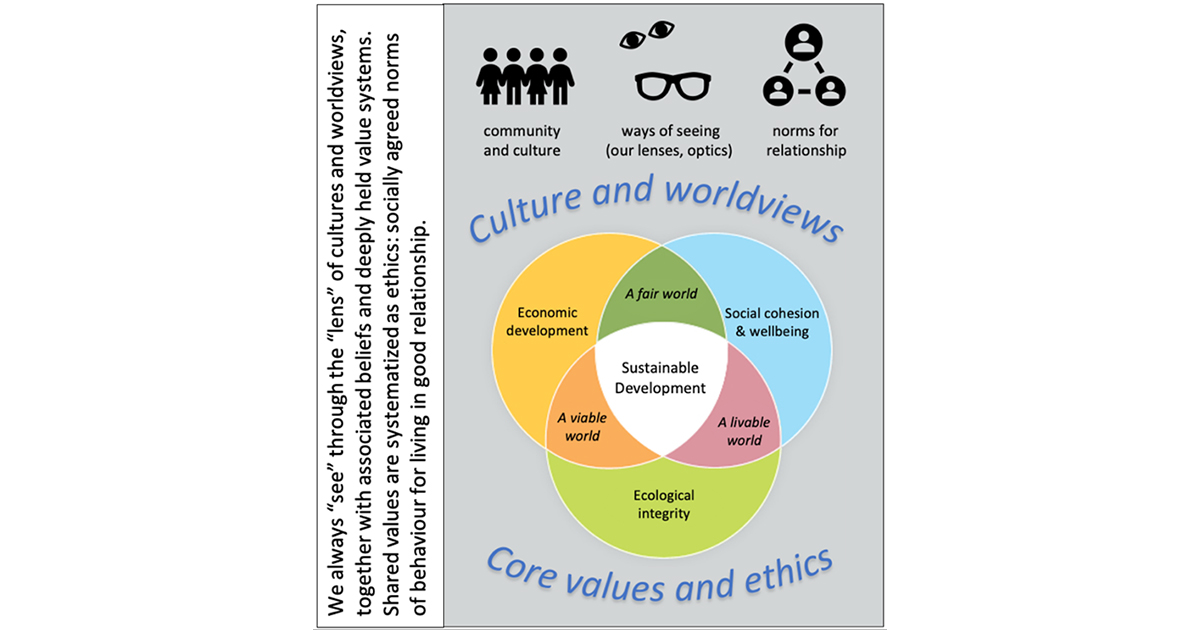- 3.3Impact Factor
- 7.7CiteScore
- 18 daysTime to First Decision
The Roles of Culture and Values in Sustainable Development
This special issue belongs to the section “Social Ecology and Sustainability“.
Special Issue Information
Dear Colleagues,
Sustainable development has long been accepted in principle as a good aspiration, yet it has been variably defined and often has been applied in ways that inadequately account for real-world complexities of integrated social-ecological systems. Individualistic and economically centered approaches in development have dominated most programs and policies—over and against more community-oriented worldviews, beliefs, values and ethics of indigenous peoples and local communities globally. Furthermore, it is recognized that virtually all human groups including formal, informal and natural associations, corporations, faith communities, and more, i.e., all major stakeholders and rights holders—have intrinsic cultures (whether these are recognized as such or not) and hold certain values, leading to particular norms and modes of thinking and action. Yet, the critical roles of culture and values for achieving sustainability in diverse social-ecological settings have largely been overlooked, especially with critically important relational values of some stakeholders often ignored or suppressed in favor of narrower economic valuations and consequently with the commodification of nature often implicitly and sometimes explicitly endorsed and promoted by more powerful agencies.
In this Special Issue, contributions are sought from a plurality of places and cultures across the world’s diverse socio-ecological systems—seeking to bring together in a single issue a diverse range of players, places, and perspectives—aiming especially to explore how culture and value systems are contributing, positively and negatively, to sustainability. How we see the world around us and how we relate to other stakeholders (and rights holders) is broadly oriented through the “lens” of culture and worldviews, and guided more specifically within the context of deeply held values and socially agreed norms of behavior, i.e., ethics. This Special Issue will draw together experiences and literature from across the fields of social-ecological theory and sustainability science, the latter focused especially on recently emerging dialogues in relational theory and practice; building synergies and crystalizing new ways of envisaging sustainability. Descriptive, normative and mixed contributions are welcome, but all must engage with the broader literature and be informed by concrete examples since sustainability is only ever achieved within the contexts and tangible realities of particular ecological and sociopolitical places and spaces.
Dr. J. Marc Foggin
Dr. Daniele Brombal
Dr. Richard Gunton
Prof. Dr. Norman Wirzba
Guest Editors
Manuscript Submission Information
Manuscripts should be submitted online at www.mdpi.com by registering and logging in to this website. Once you are registered, click here to go to the submission form. Manuscripts can be submitted until the deadline. All submissions that pass pre-check are peer-reviewed. Accepted papers will be published continuously in the journal (as soon as accepted) and will be listed together on the special issue website. Research articles, review articles as well as short communications are invited. For planned papers, a title and short abstract (about 250 words) can be sent to the Editorial Office for assessment.
Submitted manuscripts should not have been published previously, nor be under consideration for publication elsewhere (except conference proceedings papers). All manuscripts are thoroughly refereed through a single-blind peer-review process. A guide for authors and other relevant information for submission of manuscripts is available on the Instructions for Authors page. Sustainability is an international peer-reviewed open access semimonthly journal published by MDPI.
Please visit the Instructions for Authors page before submitting a manuscript. The Article Processing Charge (APC) for publication in this open access journal is 2400 CHF (Swiss Francs). Submitted papers should be well formatted and use good English. Authors may use MDPI's English editing service prior to publication or during author revisions.
Keywords
- worldview
- culture
- values
- ethics
- sustainability
- valuation
- commodification
- stakeholders
- rights holders
- pluralism
- diversity
- rights-based approaches
- partnerships
- consensus building
- trade-offs
- decision-making
- political ecology
- indigenous peoples
- local communities
- place

Benefits of Publishing in a Special Issue
- Ease of navigation: Grouping papers by topic helps scholars navigate broad scope journals more efficiently.
- Greater discoverability: Special Issues support the reach and impact of scientific research. Articles in Special Issues are more discoverable and cited more frequently.
- Expansion of research network: Special Issues facilitate connections among authors, fostering scientific collaborations.
- External promotion: Articles in Special Issues are often promoted through the journal's social media, increasing their visibility.
- Reprint: MDPI Books provides the opportunity to republish successful Special Issues in book format, both online and in print.


